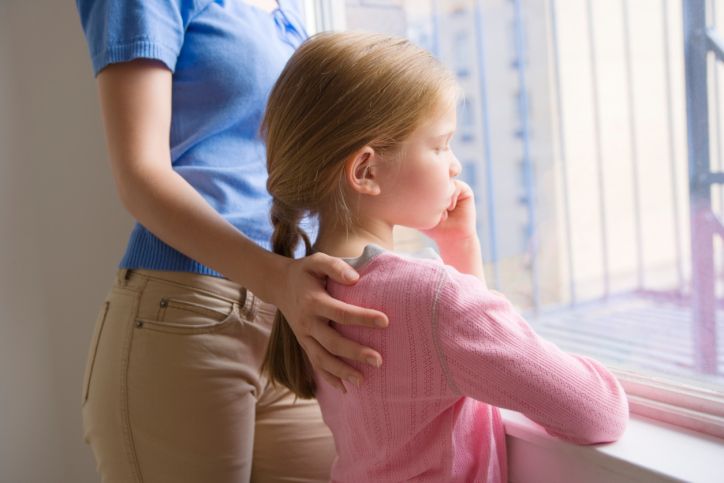Consider the age of the child
Your approach to the subject will differ depending on the age of the child. You may find that very young children, for example toddlers and pre-schoolers, will take the situation at face value. The present moment is often the only thing that matters to them – they do not get bogged down with the past or what the future might hold. Therefore, you may notice that they can interact quite happily with the person with dementia – certainly during the early and mid stages. It is also worth noting that young children often enjoy repetitive games or activities, so this could be built into a visit with the person with dementia.
For older children, especially teenagers, visits to a grandparent or elderly relative who has dementia might be upsetting or uncomfortable. In this instance, it’s important to explain the symptoms without scaring them.
Explain the symptoms
Explain the symptoms of dementia in a sensitive way that the child will understand. Don’t bombard the child with more detail than they need, unless of course the child asks and they are old enough to handle this information.
‘Drip-feeding the information is key, as is considering the age of the child,’ says Rikki Lorenti, Admiral Nurse at SweetTree (www.sweettree.co.uk). ‘With older children, you will be able to be more explicit and explain how dementia impacts memory, but that it will also affect the grandparent’s mood. For a younger child, it’s very much about being clear that Grandad will forget things and sometimes he might be a bit unhappy. You can then build on this basic understanding as they get older. It’s about pitching it at a level the child can comprehend.’
Lead by example
Children will often follow your lead during a visit to a grandparent with dementia. Whatever concerns or fears you might harbour, it’s important to put these aside when visiting the person with dementia, especially when doing so with children. If you can act relaxed and calm, your children will realise there is nothing to be scared of, even if the grandparent does seem confused, forgetful or distracted.
Respect the relationship
A relationship with a grandchild can offer the person with dementia a huge amount of self-worth. Young children very much live in the moment and often will not have a fixed idea about how Grandma or Grandpa ‘should’ be behaving, so visits may not upset them, especially if the person is deteriorating quite gradually. For older children, it’s important to support their relationship with the grandparent. Help them by discussing things they might talk about prior to the visit. They may be able to help with tasks when visiting their grandparent, such as fetching them a glass of water or making them a cup of tea, which will give them a sense of responsibility that will likely empower them and help strengthen the bond. You could consider keeping the visits short if the older child or teenager begins to become upset, to avoid damaging the relationship and ensure they don’t get put off from future visits.
Assess visit by visit
Of course, it’s important to assess the situation at each visit, especially if the person is displaying erratic or aggressive behaviour that will upset or frighten children.
‘It’s about keeping everyone safe and assessing the risk,’ says Rikki. ‘If it’s clear that Grandad has had a bad couple of days, it might be worth not including the child in the visit. Having said that, everyone is different, so it’s about really understanding the person. If you find that, actually, he is in a bad mood but he’s not physically aggressive, a visit from his grandchild might help. Of course, if it could lead to confrontation, suggest going to see Grandad in a couple of days, because he’s not very well.’
Enlist a wider support network
If your child is struggling to come to terms with the fact their grandparent has dementia, seek out resources that may help them understand and accept the situation.
‘The Alzheimer’s Research UK website has a section called Dementia Explained, which includes interactive games and videos pitched at children of all age groups, to help them understand what dementia is,’ says Rikki. ‘You could also explore whether the child would benefit from talking to someone outside the family, such as a school counsellor.’



)
)
)
)
)
)
)
)